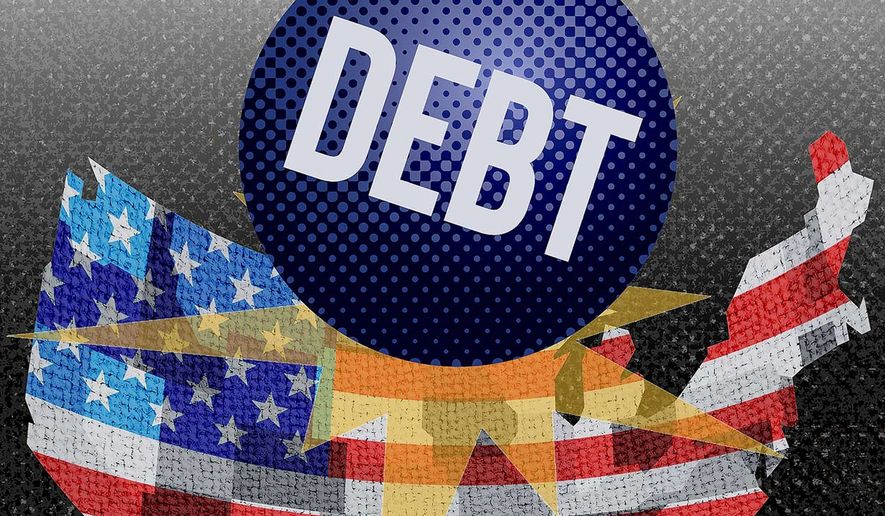OPINION:
Everywhere one looks these days, it appears services and products cost more but deliver less than they once did. That seems especially true when it comes to the federal government.
President Biden wants to raise taxes again. Unlikely, given the Republican House majority, but this Tax Day offers us our annual opportunity to explore what we are getting in exchange for what we’re paying Washington. Out-of-control spending, not lack of revenue, is responsible for our crushing national debt.
The Committee for a Responsible Federal Budget — the name reflects a pipe dream if ever there was one — has issued the following statement: “The Treasury Department’s latest numbers show that we’ve borrowed more than a trillion dollars so far this fiscal year and we’re only halfway through. But despite the need for a comprehensive plan to address our runaway borrowing, in Washington, all we’re hearing from our elected officials is crickets.”
One reason is that too many Americans are hooked on “benefits” and “entitlements” and can’t imagine living without them, so they mostly vote for those who will keep the goodies flowing.
The CRFB statement continued: “We’re nearly at the point where our debt will be larger than the economy itself and on track to exceed its highest level ever as a share of the economy — truly unprecedented territory — in five years. And it’s getting more and more expensive to service that debt — interest on the debt is on track to exceed $10 trillion over the next decade. We’ll spend more on interest over the decade than we will on defense or Medicaid. That’s truly astounding, especially against a backdrop of policymakers who continue to demagogue on the important challenges we face funding Social Security and Medicare.”
Why aren’t enough elected officials taking seriously projections that show Social Security will run out of money in 10 years with prospects of benefit cuts and tax increases?
Again, the CRFB gets it right: “We need a plan to cut back on borrowing and put the country’s finances on a path towards sustainability. Otherwise, our habit of ignoring these issues and perpetually relying on the decisions of tomorrow will leave the next generation with colossal burdens to overcome.”
Where to find such a plan? How about starting with discretionary spending, which has ballooned 37% in the last five years?
CRFB has such a plan, stating that “reducing next year’s appropriations to FY 2022 levels and then growing spending by 1 percent per year would save $288 billion over two years and $3 trillion over a decade. As a result, it would reduce the national debt by 8.5 percent of gross domestic product (GDP) by 2033 versus baseline projections.”
It even provides a “Build Your Own Discretionary Budget” link allowing individuals to decide on what and how much to spend with cost savings included in the calculations. Try it by visiting crfb.org.
Solutions like this exist for reducing our $31 trillion debt, but like the indecipherable tax code, politicians benefit from the spending and the tax breaks for big contributors to their reelection campaigns. Heaven forbid they make actual cuts and eliminate unnecessary agencies that no longer perform as originally intended.
I hate to repeat myself, but in a previous book, I noted that no nation in history has survived with such massive debt as ours. None. What makes us think we are any different? Those other in-debt nations probably thought of themselves as exceptions to basic economic rules. History does repeat if we don’t cease doing what causes its repetition.
• Readers may email Cal Thomas at tcaeditors@tribpub.com. Look for Cal Thomas’ latest book, “A Watchman in the Night: What I’ve Seen Over 50 Years Reporting on America” (HumanixBooks).




Please read our comment policy before commenting.